At least 15 percent of the $1.2 billion in highway user fees collected by the state of Tennessee in FY 2015-2016–$189 million– was diverted away from road construction (see page A-65 of The Budget: State of Tennessee, Distribution of Actual Revenue by Fund, FY 2015-2016).
Under Gov. Haslam’s proposed FY 2017-2018 budget, virtually the same amount of highway user fees–$187 million–will continue to be diverted away from road construction. (see page A-67 of The Budget: State of Tennessee, Distribution of Estimated Revenue by Fund, FY 2017-2018).
FY 2015-2016 is the most recent year for which actual expenditures are available.
Throughout the public debate over the past two months about Gov. Haslam’s proposed IMPROVE Act, which includes a gas tax increase of 7 cents per gallon, apologists for a gas tax increase–including House Transportation Committee Chairman Barry Doss (R-Leoma), House Senate Transportation Chairman Paul Bailey (R-Sparta), and 99.7 FM WWTN radio’s Ralph Bristol, host of Nashville’s Morning News–have yet to answer one key question about the state’s budget priorities:
With a $1 billion surplus in the state budget, why do you support a gas tax increase when much of the purported road construction shortfall could be addressed by simply re-allocating the $187 million in highway user fees that will be collected in FY 2017-2018 and diverted away from road construction back to the intended purpose of those user fees: road construction?
The House Transportation Committee is scheduled to vote on Gov. Haslam’s IMPROVE Act this week, and this important question has yet to be asked or answered in public.
“In my six years in the Tennessee General Assembly whenever a legislator sponsored a bill that created a new source of revenue for the state they (especially Republicans) invariably would go to great lengths to stay away from the word ‘tax,’ and instead use the term ‘fee.’ This was always done to disguise or camouflage their intent,” former State Rep. Joe Carr tells The Tennessee Star.
“With regard to the Haslam administration, legislators and now talk radio substituting the term ‘user fee’ for the word ‘tax,’ this further illustrates the point about the proponents of the Haslam Gas Tax using subterfuge to accomplish their goal of raising fuel taxes on working Tennessee families,” Carr adds.
Investopedia, “the largest financial education website in the world,” defines user fee as “A sum of money paid by the individual who chooses to access a service or facility. Examples of user fees include highway tolls, parking charges and national park entry fees. With user fees, the individual directly pays for something he wants and receives what he has paid for. In contrast, taxes must be paid by force and do not necessarily go toward a specific service or facility that an individual actually uses or benefits from.”
“Because user fees are more palatable than taxes, politicians may sometimes try to disguise taxes as user fees,” the financial education website continues.
“However, sometimes the line between user fees and taxes is blurred, as in the case of gasoline taxes being used to fund the Interstate Highway System,” Investopedia adds.
In Tennessee, politicians have traditionally described a number of taxes as highway user fees. Table 1 below breaks down of the $1.2 billion in “highway user fee taxes” collected by the state of Tennessee in FY 2015-2016:
| Table 1 | ||
| Sources of Highway User Fee Taxes | ||
| State of Tennessee Budget, FY 2015-2016 | ||
| Actual | ||
| Highway User Fee Tax | $ | % |
| Gasoline Tax | 659,915,000 | 55.3% |
| Motor Fuel Tax | 172,336,300 | 14.4% |
| Gasoline Inspection Tax | 67,380,500 | 5.6% |
| Motor Vehicle Registration Tax | 271,197,800 | 22.7% |
| Motor Vehicle Title Fees | 22,781,500 | 1.9% |
| Total Highway User Fee Taxes | 1,193,611,100 | 100.0% |
| Source: Budget: State of Tennessee, FY 2017-2018 | ||
| Page A-65 | ||
Table 2 below breaks down how those “highway user fee taxes were spent by the state of Tennessee in FY 2015-2016.
| Table 2 | ||
| Uses of Collected Highway User Fee Taxes | ||
| State of Tennessee Budget, FY 2015-2016 | ||
| Actual | ||
| Uses of Highway User Fee Taxes | $ | % |
| Diverted to General Fund | 98,002,700 | 8.2% |
| Diverted to Education Fund | 69,300 | 0.0% |
| Diverted to Debt Service Fund | 91,500,000 | 7.7% |
| ‘Transportation’ at Cities & Counties | 309,187,700 | 25.9% |
| Highway Fund | 694,851,400 | 58.2% |
| Total Uses of Highway User Fee Taxes | 1,193,611,100 | 100.0% |
| Source: Budget: State of Tennessee, FY 2017-2018 | ||
| Page A-65 | ||
When presented with these facts, gas tax increase apologists, and at least one member of the Tennessee General Assembly who has publicly stated opposition to the gas tax increase, do not deny them.
“I actually have a slide in my town hall presentation that shows why money is diverted from the Highway Fund and where it goes. Each amount makes perfect sense,” State Rep. Susan Lynn (R-Mt. Juliet), who told The Star recently she does not support a gas tax but agrees with gas tax increase apologists on this point, said in a recent email to a constituent, as The Star reported.
Like Lynn, gas tax apologists argue that the diversions of highway user fee taxes are statutory, and therefore somehow do not violate the economic principle of user fees–those that use a product or service should pay for it.
“Completely in line with the ‘User Fee’ concept, the Department of Revenue collects all taxes – by law – Revenue is allowed to recoup their expenses for collection and accounting from the amount of tax collected but only up to 2% of the amount collected for the tax. Revenue’s expenses for the collection and accounting rarely equal 2% as you will see below. Also, some of the gasoline inspection tax that is in the General Fund is spent by the department of agriculture – it is for lab test fees for testing the gasoline samples collected under this program,” Lynn asserts.
While it is true the diversions are statutory, that does not bless those diversions as economically sound or “in line with the ‘User Fee’ concept,” as Lynn claims.
Then, there is the question of why highway user fee taxes are spent on the Debt Services Fund, a general obligation of the state of Tennessee that does not appear to be specifically related to road construction.
“The money in the Debt Services Fund column is an accounting necessity of GASB – a reserve – this money is never spent but must be reserved in case the state falls short and cannot meet the obligation of all of the outstanding TDOT contracts,” State Rep. Lynn says.
Lynn’s explanation appears inconsistent with the explanation of the use of the $91.5 million diverted from highway user fees taxes and applied to the Debt Service Fund, as described on page A-120 of the document titled Budget: State of Tennessee, FY 2017-2018:
$3 million was spent on debt service for Bridge Bonds issued by the Highway Fund. $85.8 million was spent on “Highway Fund-Bonds Cancelled,” and $2.7 million appears to have been transferred to “other funds.”
It is unclear if the $85.8 million spent on “Highway Fund-Bonds Cancelled” actually went into the coffers of the Highway Fund and was used to build roads, or if it remained in the General Fund for use in debt service and debt repayment of general obligation bonds.
The total amount of money from highway user fee taxes collected by the state of Tennessee diverted from road construction may be significantly greater than the $189 million in FY 2015-2016 identified by The Star.
The Haslam administration has not, as of yet, presented evidence that all of the $309 million in highway user fee taxes sent to city and county governments for “transportation” projects is spent on road construction.
“The money in the cities and counties column is their share of the collected taxes,” State Rep. Lynn asserted in her email to a constituent.
It is at present unknown how much of these $309 million in highway user fee taxes sent to city and county government is spent on projects such as parks, bikeways, and other non-road construction projects.
To date, neither the Haslam administration nor the gas tax increase apologists in the Tennessee General Assembly or the local media have been eager to look into these numbers and present them to the public.
There is also a question of how much of the $694 million in highway user fee taxes transferred to the Highway Fund is spent on road construction. Some of those Highway Fund expenditures may be for administrative costs of the Tennessee Department of Transportation, not direct expenditures on roads.
A major reason for the growing public distrust of the gas tax increase proposed by Gov. Haslam is the failure of his administration to affirmatively demonstrate how his plan is consistent with the claimed “user fee principle.”
Gas tax increase apologists appear dedicated to the preservation of a non-existent principle, and disinterested in how the highway user fee taxes are actually spent.
“It is my humble, but considered opinion that Governor Haslam has almost presented a thoughtful, responsible plan that preserves the integrity of an admirable and enviable tax system, which has become even more admirable and enviable under his watch, albeit not always with his initial full blessing, and that his plan adequately addresses a real need that has always been considered so sacred that it deserved special protection, even from economic downturns that affect the rest of the people’s purse,” WWTN’s Bristol said in testimony before the State Senate Transportation Committee on February 27.
“But, I do not support the Governor’s plan, as is, because I don’t believe it is the revenue neutral plan it advertises itself to be,” he said, adding later in his testimony that “Governor Haslam’s plan could easily be made revenue neutral, or better, with a larger sales tax cut, whether in groceries, or products in general, and I believe it’s affordable.”

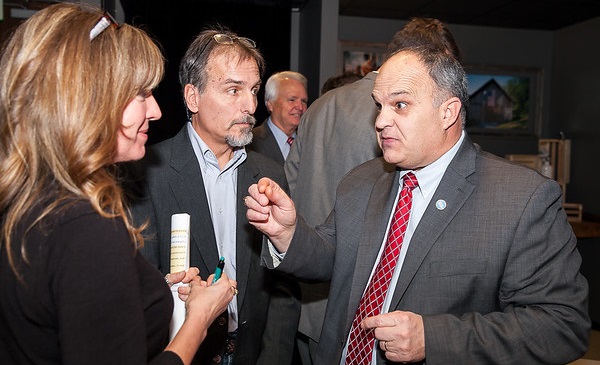



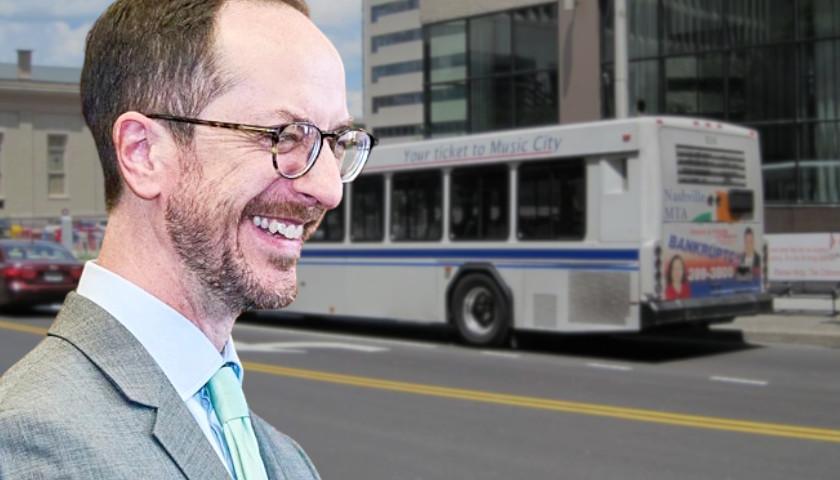
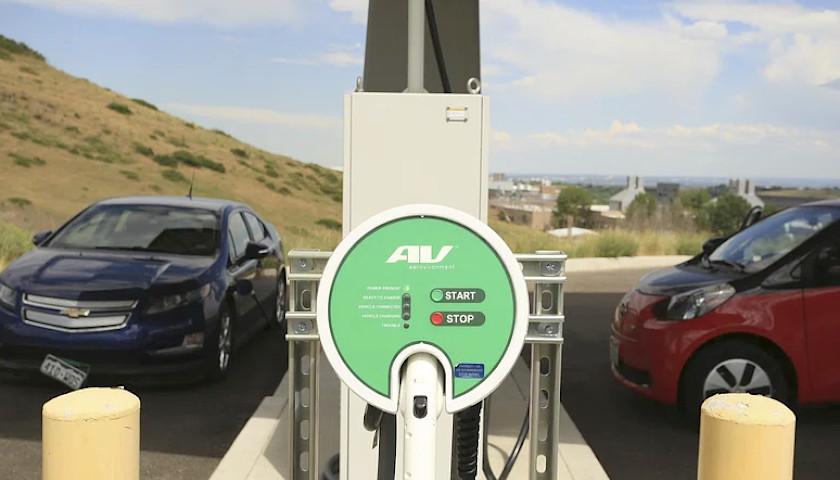
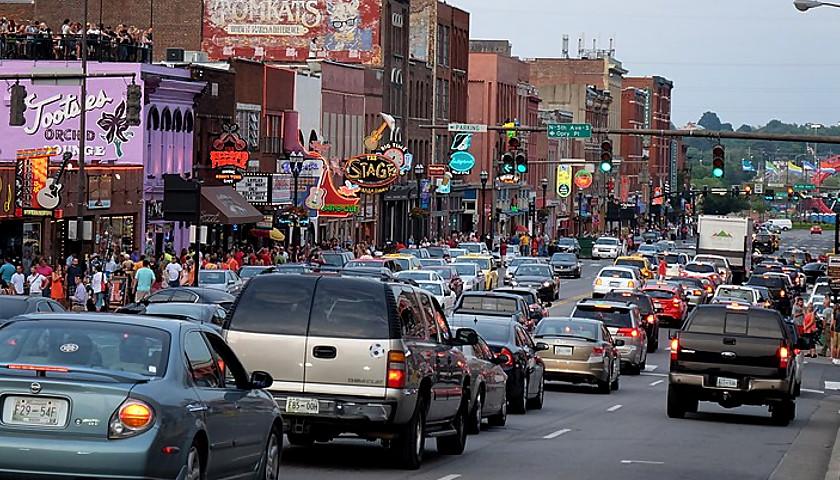
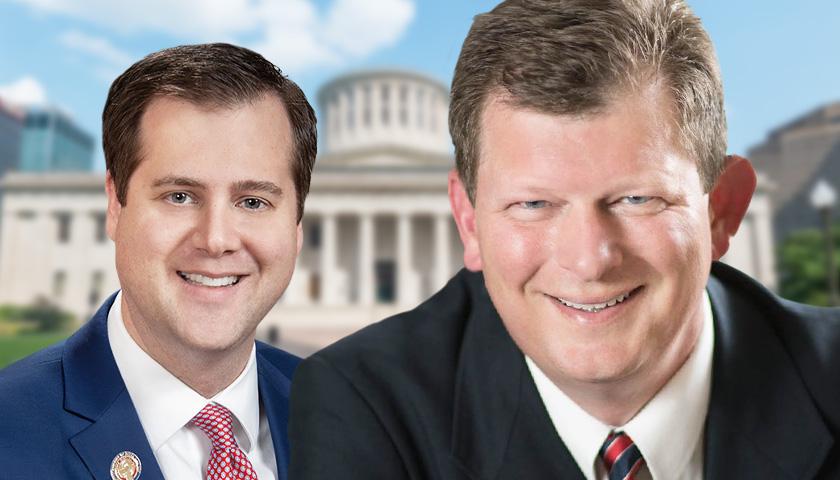
[…] was not asked to comment on Chairman Barry Doss’ (R-Leaoma) violation of Tennessee House of Representatives Rule 34 in the…, a rule breaking abuse of power that enabled the vote to be held on Tuesday in […]
[…] diverted from the purpose of road construction totals $256.7 million: $187 million that The Star reported previously is diverted to the General Fund, Debt Service, and Education, and the up-to $69.7 million cities and […]
[…] The Tennessee Star reported earlier this week, in FY 2015-2016, highway user fees, primarily gas and diesel taxes, generated […]